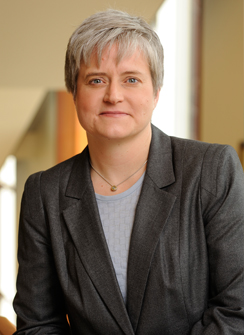By: Dr. Nancy Glass
If you have been following Dirty John, the Wondery and LA Times podcast and Bravo TV series, you likely didn’t miss the final episode. Thankfully the Newell family was safe, but their lives were forever changed. At the last minute, Debra Newell (actor Connie Britton) decided to return the call from LA Times reporter Christopher Goffard.
In the call, Debra agreed to share her story as a domestic violence survivor with the hope that other women and their families would not experience the stalking, harassment, threats, and fear that she had with John Meehan, an abusive, violent man. Meehan’s story continues to surprise us as a society even when we have heard it so many times before. The handsome and charming man with the good job and all the right answers – isn’t he perfect? When he turns out not to be perfect, women are taught to doubt and question themselves. They ask, “How did this man trick me into loving him?”
Today we have a good understanding of the pattern of dangerous behaviors abusive men use to manipulate their partners. However, most women, their friends, and their family members do not have access to safety information, which is especially important when a woman starts to question and challenge abusive behavior. Dirty John presents an opportunity for women in abusive relationships to learn more about developing a safety plan. A safety plan is a personalized, practical plan that can help a woman and her family avoid dangerous situations and identify the best way to react when in danger.
The myPlan app is a confidential, secure, and free web-based safety planning tool. With myPlan, women first answer questions about their relationship and assess their risk for severe and potentially lethal violence by an abusive partner. Some risk behaviors include threats to kill, access to a weapon, abuse of alcohol and/or drugs, stalking including multiple threatening phone calls and messages, and extreme jealousy. Then, the woman will establish her safety priorities, such as ensuring the well-being of children, identifying resources, or safety for herself.
With this information, the myPlan app creates a tailored safety plan that links women to confidential services such as hotlines to advocates who connect women (and concerned friends/family members) to resources for safety, like housing, health care, counseling, legal support, and child safety resources. As relationships are dynamic and safety can change quickly, the myPlan app and the tailored safety plan is available 24/7 and can be reviewed and modified based on the situation.
The myPlan app helps women to make decisions for safety in abusive relationships and access services, but the app is not a replacement for trained domestic violence advocates. If you need information on how to contact advocates and services in your state and community, contact the confidential National Domestic Violence Hotline 24/7 at 800-799-SAFE (7233) or 1-800-787-3224 (TTY).
ABOUT THE AUTHOR

Nancy Glass, PhD, MPH, RN, FAAN, is Associate Director for Johns Hopkins Center for Global Health, Independence Chair in Nursing Education, and a Professor at Johns Hopkins School of Nursing. She conducts clinical and community-based intervention research with diverse populations across multiple settings domestically and globally.
